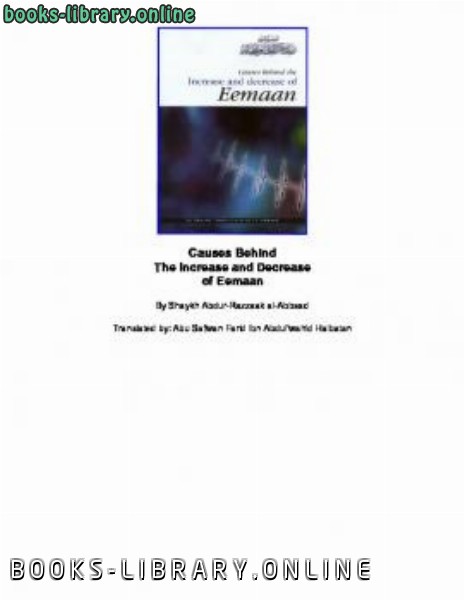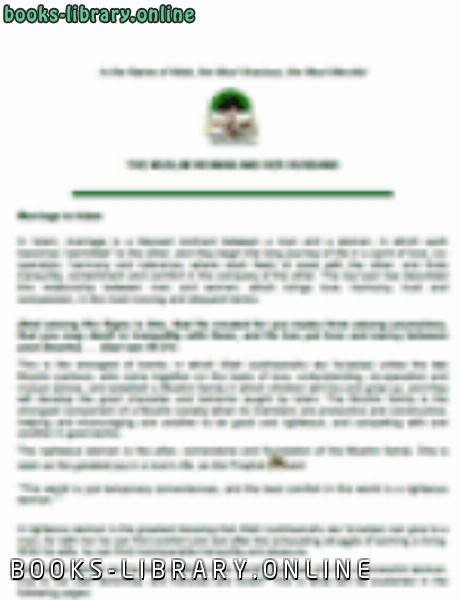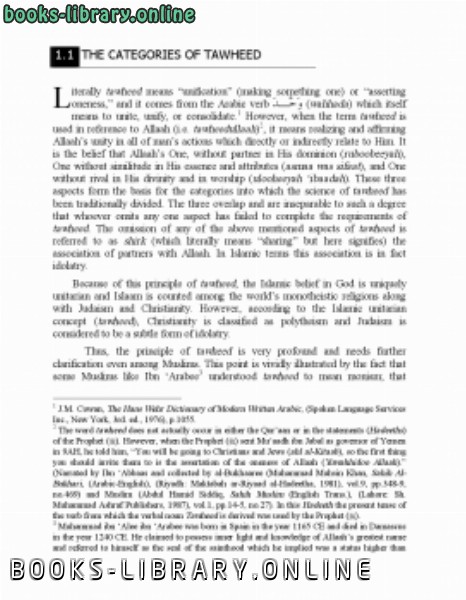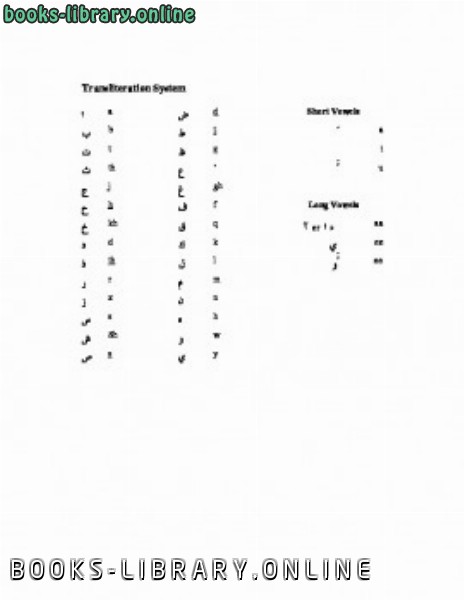كتاب Al Sarakhsī’s Contribution to the Islamic Law of War
This paper examines the contributions of the Ḥanafī jurist al-Sarakhsī (d. 483 AH/1090-91 CE) to the development of the Islamic tradition of war. By examining al-Sarakhsī’s treatment of the use of force by both state and non-state actors in al-Mabsūṭ, this paper answers im- portant questions about warfare in Islam. First, it asks whether Islam sanctions offensive war against non-Muslims because of their religious beliefs. Second, it investigates the extent to which Islamic jus in bello rules are consistent with the four Geneva Conventions of 1949 and their Additional Protocols. Third, it examines the circumstances under which it is permissible Book AlSarakhsī’s Contribution to the Islamic Law of War author : Ahmed AlDawoodyAhmed Al Dawoody - ❰ له مجموعة من الإنجازات والمؤلفات أبرزها ❞ War in Islamic Law: Justifications and Regulations ❝ ❞ Al Sarakhsī’s Contribution to the Islamic Law of War ❝ ❞ Armed Jihad in the Islamic Legal Tradition ❝ ❱
من كتب اسلامية باللغة الانجليزية كتب إسلامية بلغات أخرى - مكتبة كتب إسلامية.

قراءة كتاب Al Sarakhsī’s Contribution to the Islamic Law of War أونلاين
معلومات عن كتاب Al Sarakhsī’s Contribution to the Islamic Law of War:
CE) to the development of the Islamic tradition of war. By examining al-Sarakhsī’s treatment
of the use of force by both state and non-state actors in al-Mabsūṭ, this paper answers im-
portant questions about warfare in Islam. First, it asks whether Islam sanctions offensive war
against non-Muslims because of their religious beliefs. Second, it investigates the extent to
which Islamic jus in bello rules are consistent with the four Geneva Conventions of 1949 and
their Additional Protocols. Third, it examines the circumstances under which it is permissible
Book AlSarakhsī’s Contribution to the Islamic Law of War author : Ahmed AlDawoody
للكاتب/المؤلف : Ahmed Al Dawoody .
دار النشر : .
سنة النشر : 2015م / 1436هـ .
عدد مرات التحميل : 6167 مرّة / مرات.
تم اضافته في : الثلاثاء , 26 مارس 2019م.
حجم الكتاب عند التحميل : 380 كيلوبايت .
تعليقات ومناقشات حول الكتاب:
This paper examines the contributions of the Ḥanafī jurist al-Sarakhsī (d. 483 AH/1090-91
CE) to the development of the Islamic tradition of war. By examining al-Sarakhsī’s treatment
of the use of force by both state and non-state actors in al-Mabsūṭ, this paper answers im-
portant questions about warfare in Islam. First, it asks whether Islam sanctions offensive war
against non-Muslims because of their religious beliefs. Second, it investigates the extent to
which Islamic jus in bello rules are consistent with the four Geneva Conventions of 1949 and
their Additional Protocols. Third, it examines the circumstances under which it is permissible
for Muslims to rebel against their ruler. Fourth, it explores the meaning of terrorism accord-
ing to Islamic law and whether or not terrorism is punishable under Islamic law. This paper
shows that the Islamic law of war has the potential to impact the attainment of peace in our
globalized world. More importantly, this paper exposes the need for a reevaluation of specific
classical Islamic rules regulating warfare in light of present-day armed conflicts.
Book AlSarakhsī’s Contribution to the Islamic Law of War author : Ahmed AlDawoody
 مهلاً !
مهلاً !قبل تحميل الكتاب .. يجب ان يتوفر لديكم برنامج تشغيل وقراءة ملفات pdf
يمكن تحميلة من هنا 'تحميل البرنامج'

نوع الكتاب : pdf.
اذا اعجبك الكتاب فضلاً اضغط على أعجبني و يمكنك تحميله من هنا:


كتب اخرى في كتب اسلامية باللغة الانجليزية

English Translation of Majmoo rsquo al Fatawa of Sh Ibn Baz 2nd Edition PDF
قراءة و تحميل كتاب English Translation of Majmoo rsquo al Fatawa of Sh Ibn Baz 2nd Edition PDF مجانا

Islam: The Complete and Final Message to Man PDF
قراءة و تحميل كتاب Islam: The Complete and Final Message to Man PDF مجانا

Causes Behind The Increase and Decrease of Eemaan PDF
قراءة و تحميل كتاب Causes Behind The Increase and Decrease of Eemaan PDF مجانا
Reference Works on the Qur’an in English: A Survey PDF
قراءة و تحميل كتاب Reference Works on the Qur’an in English: A Survey PDF مجانا





